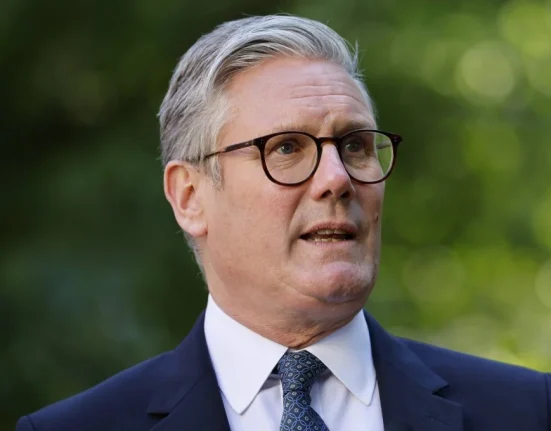In a significant diplomatic development, the United Kingdom has suspended its ongoing pursuit of a new free trade agreement with Israel, citing deep concerns over the humanitarian catastrophe unfolding in Gaza and the intensifying violence in the occupied West Bank. This decision, delivered formally by UK Foreign Secretary David Lammy in Parliament on Tuesday, marks one of the strongest moves yet by the new Labour-led government under Prime Minister Keir Starmer, which has adopted a more assertive stance on international human rights and conflict resolution.
The suspension follows weeks of relentless Israeli bombardment in Gaza, where hundreds of Palestinians have reportedly been killed in recent days amid a renewed ground offensive. Aid agencies and UN officials have described the situation as dire, with widespread hunger, medical shortages, and critical infrastructure in ruins. Lammy stated emphatically that while the existing trade agreement with Israel remains intact, any further negotiations for a new deal cannot proceed under current circumstances, particularly with what he described as “egregious policies” being carried out by the Israeli government.
In tandem with this announcement, the UK has imposed a fresh round of sanctions targeting illegal Israeli settler activity in the occupied West Bank. These include punitive measures against three individuals, two unrecognised settler outposts, and two organisations accused of promoting or supporting violence against Palestinians. Lammy underscored that the pattern of settler aggression, often backed by elements within the Israeli Defence Forces, has escalated beyond tolerable limits, endangering not only Palestinian lives but also prospects for a two-state solution.
The British Foreign Office also confirmed that Israeli Ambassador to the UK, Tzipi Hotovely, has been summoned for a formal reprimand. She is to be informed that the UK considers the 11-week blockade on humanitarian aid to Gaza as “cruel and indefensible”, according to statements made by Lammy in Parliament. The UK’s Middle East Minister, Hamish Falconer, will personally convey this message, reinforcing London’s demand for immediate and unimpeded access for humanitarian relief into the besieged territory.
This dramatic shift comes shortly after coordinated criticism from the UK, France, and Canada over Israel’s conduct in both Gaza and the West Bank. Prime Minister Starmer, addressing Parliament on the same day, declared the suffering endured by children in Gaza as “utterly intolerable”, renewing his government’s call for an immediate ceasefire. He stressed that the Israeli leadership must urgently act to prevent further deterioration, stating that continued inaction jeopardises not just civilian lives but the long-term viability of peace.
Meanwhile, the European Union has also moved in a similar direction, with EU foreign policy chief Kaja Kallas confirming on Tuesday that the bloc will initiate a formal review of its trade agreement with Israel. The move was prompted by what EU officials described as the “catastrophic” humanitarian toll in Gaza, alongside increasing alarm over settler violence.
Reacting to the UK’s measures, Israel’s Foreign Ministry expressed disappointment, accusing London of politicising trade matters and dismissing the sanctions as “unjustified and regrettable”. The ministry added that discussions around the free trade agreement had already stalled prior to the UK’s formal announcement, attributing the freeze to the current UK government’s position.
As global scrutiny grows, the United Kingdom’s latest actions place it among a growing list of Western allies recalibrating their ties with Israel in response to escalating civilian harm and what many now view as disproportionate military responses in Gaza. The diplomatic pressure is expected to intensify further unless substantial changes are seen in both military conduct and the treatment of Palestinians in occupied territories.

